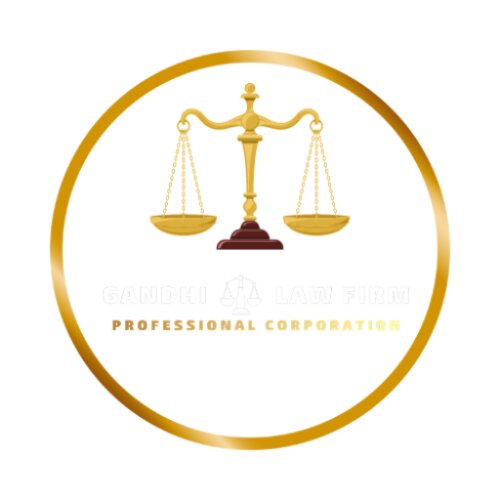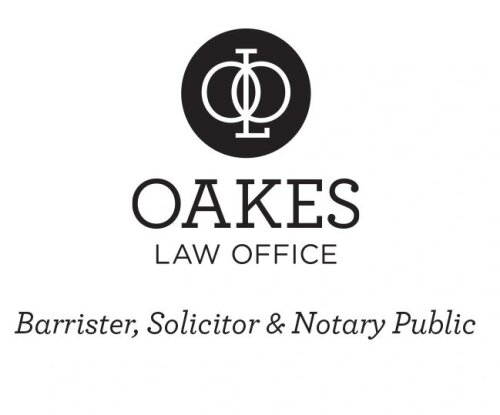Best Inheritance Law Lawyers in Toronto
Share your needs with us, get contacted by law firms.
Free. Takes 2 min.
List of the best lawyers in Toronto, Canada
1. About Inheritance Law in Toronto, Canada
Inheritance law in Ontario governs how a deceased person’s assets are distributed. In Toronto, residents follow provincial rules that apply across the province, including wills, intestacy, and dependants relief. The framework is primarily set out in the Wills, Estates and Succession Act (WESA), the Succession Law Reform Act (SLRA), and the Estates Act. These statutes determine who inherits, who administers the estate, and how assets are transferred to beneficiaries.
Estate administration often involves probate or a similar court process to confirm the executor's authority to distribute assets. Ontario probate fees apply to many estates and can affect the total value passing to beneficiaries. A Toronto solicitor or attorney familiar with local practice can navigate variations in real estate transfers, trusts, and creditor claims efficiently. For reliable, government-backed references on Ontario law, consult the province’s official law portals and related government resources.
Ontario probate fees are calculated based on the estate value and apply to assets that require probate.
Source: Ontario government laws portal See also Ontario e-Laws.
2. Why You May Need a Lawyer
Here are concrete, Toronto-specific scenarios where a lawyer's guidance is essential. Each example reflects typical problems that arise in the city and surrounding GTA area.
- Exclusion from a will or disputes among beneficiaries - A Toronto family trustee or executor may face claims from a spouse, child, or dependent who believes they were unjustly left out. A lawyer can assess validity, identify potential dependencies or equalization issues, and advise on possible challenges under Ontario law.
- Intestacy when there is no valid will - If someone dies without a will, Ontario law determines who inherits. An attorney can help identify who has a claim, ensure proper application of the SLRA rules, and protect a dependent’s rights.
- Executor or administrator misconduct or delays - If an executor is mismanaging assets, failing to pay debts, or unreasonably delaying a distribution, a legal practitioner can advise on remedies, including court applications to remove the executor or compel action.
- Dependants relief claims under the SLRA - A spouse, former spouse, or dependent may sue for financial support from the estate. A lawyer helps prepare the claim, gather evidence, and negotiate a fair outcome with other beneficiaries or the court.
- Real estate and probate requirements for Toronto properties - When a decedent owns property in sole name, probate may be required to transfer title. A solicitor can determine the need for probate and help with title transfers through the Land Registry Office.
- Asset protection for co-owned or complex estates - Shares, trusts, or funds held in multiple jurisdictions can complicate distribution. An Ontario attorney can coordinate with accountants and tax professionals to avoid unintended losses.
3. Local Laws Overview
The following Ontario statutes govern how inheritance, estate administration, and succession are handled in Toronto. They shape who can inherit, how wills are interpreted, and how estates are administered.
- Wills, Estates and Succession Act (WESA) - Modernizes rules for wills, intestacy, and dependants relief. WESA consolidates and clarifies many prior common law rules and governs validity and interpretation of wills in Ontario. Most provisions were implemented to broad effect by 2015, with ongoing adjustments over time. For more information, consult Ontario’s official law portal.
- Succession Law Reform Act (SLRA) - Sets out the rules for intestacy and dependants relief, including who may inherit when there is no will and how dependants can seek support from the estate. This act interacts with WESA to determine overall distribution in Ontario.
- Estates Act - Addresses the administration of estates, appointment of estate representatives, and related procedures for probate-like transfers when property is involved. It remains a foundational statute alongside WESA and SLRA in Toronto estates practice.
Notes on recent changes and practical implications: WESA moved Ontario closer to a single framework for will validity, interpretation, and intestate succession. The reforms emphasize clarity for executors and beneficiaries, and they provide clearer avenues for dependants relief. For official language and updates, see the Ontario laws portal and federal resources on estate planning as context.
Key government resources you can consult include the Ontario e-Laws portal for current statutes and interpretations, and the Public Guardian and Trustee of Ontario for matters involving vulnerable beneficiaries or estates without straightforward representation.
For government guidance on applicable rules and procedures, visit: Ontario e-Laws and Public Guardian and Trustee of Ontario. For federal context on estate taxation and related matters, see Canada Revenue Agency.
4. Frequently Asked Questions
What is the difference between a will and an estate in Ontario?
A will expresses how assets should be distributed after death. An estate includes all assets, debts, and liabilities left by the deceased and requires administration to transfer assets to beneficiaries. Executors or administrators handle estate administration under Ontario law.
How do I start probate for an Ontario estate in Toronto?
Begin by locating the will, if there is one, and collecting asset information. A Toronto lawyer can prepare the court application for a Grant of Probate and file it with the appropriate court. Expect paperwork for asset verification, debts, and taxes.
How much are Ontario probate fees on an estate?
Probate fees in Ontario are calculated on the value of the estate and apply to assets that require probate. Fees are typically based on a tiered rate with the first portion taxed at a lower rate and the remainder at a higher rate. A solicitor can provide a precise estimate for your case.
How long does the probate process typically take in Toronto?
Timelines vary widely with case complexity and court schedules. A straightforward estate can take several months, while contentious matters may take a year or more. An experienced solicitor can estimate timing based on asset types and executorship issues.
Do I need a lawyer to make a will in Ontario?
A lawyer can help ensure the will is valid, properly executed, and compliant with WESA. They can also tailor provisions to minimize challenges and clarify executors, beneficiaries, and bequests. DIY wills carry a higher risk of invalidity or unintended consequences.
Is there a difference between an executor and an administrator in Ontario?
Yes. An executor is named in a will to administer the estate. An administrator is appointed when there is no will or the named executor cannot serve. In both cases, a lawyer can manage duties and address disputes with beneficiaries.
When should I update my will after major life events?
Update promptly after events such as marriage, divorce, birth of a child, or substantial changes in assets. It is wise to review your will every few years to reflect current circumstances and tax laws.
Where can I file for probate or administer an estate in Toronto?
Applications for probate are filed with the Ontario Superior Court of Justice. A lawyer can prepare and submit the necessary forms and accompany you through the court process.
Why might a will be challenged in Ontario?
Wills can be challenged due to lack of testamentary capacity, undue influence, improper execution, or failure to meet legal requirements. An attorney can assess validity and represent you in challenges or defenses.
Can dependants claim support after a death in Ontario?
Yes. Under the SLRA, spouses and certain dependants may seek support from the estate if the will does not adequately provide for them. A lawyer can evaluate eligibility and advise on the claim process.
Should I consider trusts or other planning tools in Toronto?
Trusts can offer flexibility for asset management and tax planning. A solicitor can advise on when a trust is beneficial, how to structure it, and how it interacts with WESA and SLRA.
Do I pay probate fees on all Toronto assets?
No. Probate fees apply primarily to assets that pass through the probate process, such as real estate held in sole name. Other assets, like those held jointly or with designated beneficiaries, may not incur probate fees.
Is an informal will valid in Ontario?
Ontario generally requires a properly executed written will for formal validity. Oral wills are typically not recognized, except in limited or exceptional circumstances. A lawyer can guide you on the proper form and execution requirements.
5. Additional Resources
These official sources provide reliable information and support for inheritance matters in Ontario.
- Ontario e-Laws - Official portal for Ontario statutes and regulations. It is the primary reference for current inheritance law rules in Ontario. https://www.ontario.ca/laws
- Public Guardian and Trustee of Ontario - Services for estates without clear representation, guardianship for minors and adults, and guidance on dependants relief scenarios. Public Guardian and Trustee of Ontario
- Canada Revenue Agency - Federal information on estate taxation, final returns, and tax obligations on estate assets. Canada Revenue Agency
6. Next Steps
- Define your objective - Identify what you want to achieve, such as validating a will, contesting a provision, or clarifying executor duties. Set a realistic timeline. (1-2 days)
- Collect key documents - Gather the will, death certificate, asset lists, title deeds, and any prior probate documents. Having organized materials speeds up the consultation. (2-5 days)
- Consult a Toronto inheritance law solicitor - Seek an initial assessment to understand options, costs, and potential outcomes. Look for a lawyer with clear communication and transparent fees. (1 week)
- Request a fee estimate and engagement terms - Obtain a written retainer letter detailing hourly rates, flat fees, and anticipated disbursements. (3-7 days)
- Decide on a strategy - Choose between negotiation, mediation, or court action based on the complexity and your priorities. (1-2 weeks)
- Proceed with probate or next steps - If needed, your solicitor prepares the probate application and coordinates with the court or transfers of title. (2-6 weeks depending on process)
- Monitor progress and stay informed - Maintain regular updates with your attorney and adjust plans as required by evidence or court rulings. (ongoing)
Lawzana helps you find the best lawyers and law firms in Toronto through a curated and pre-screened list of qualified legal professionals. Our platform offers rankings and detailed profiles of attorneys and law firms, allowing you to compare based on practice areas, including Inheritance Law, experience, and client feedback.
Each profile includes a description of the firm's areas of practice, client reviews, team members and partners, year of establishment, spoken languages, office locations, contact information, social media presence, and any published articles or resources. Most firms on our platform speak English and are experienced in both local and international legal matters.
Get a quote from top-rated law firms in Toronto, Canada — quickly, securely, and without unnecessary hassle.
Disclaimer:
The information provided on this page is for general informational purposes only and does not constitute legal advice. While we strive to ensure the accuracy and relevance of the content, legal information may change over time, and interpretations of the law can vary. You should always consult with a qualified legal professional for advice specific to your situation.
We disclaim all liability for actions taken or not taken based on the content of this page. If you believe any information is incorrect or outdated, please contact us, and we will review and update it where appropriate.















